The 1937 Packard 1501 Super Eight Formal Sedan stands as a true testament to the elegance and luxury of the automotive industry during the golden era of automobile manufacturing. With its refined design, advanced features, and exceptional performance, the Packard Super Eight captivated the hearts of car enthusiasts and esteemed individuals alike. Let’s delve into the captivating history and remarkable features of this iconic vehicle.
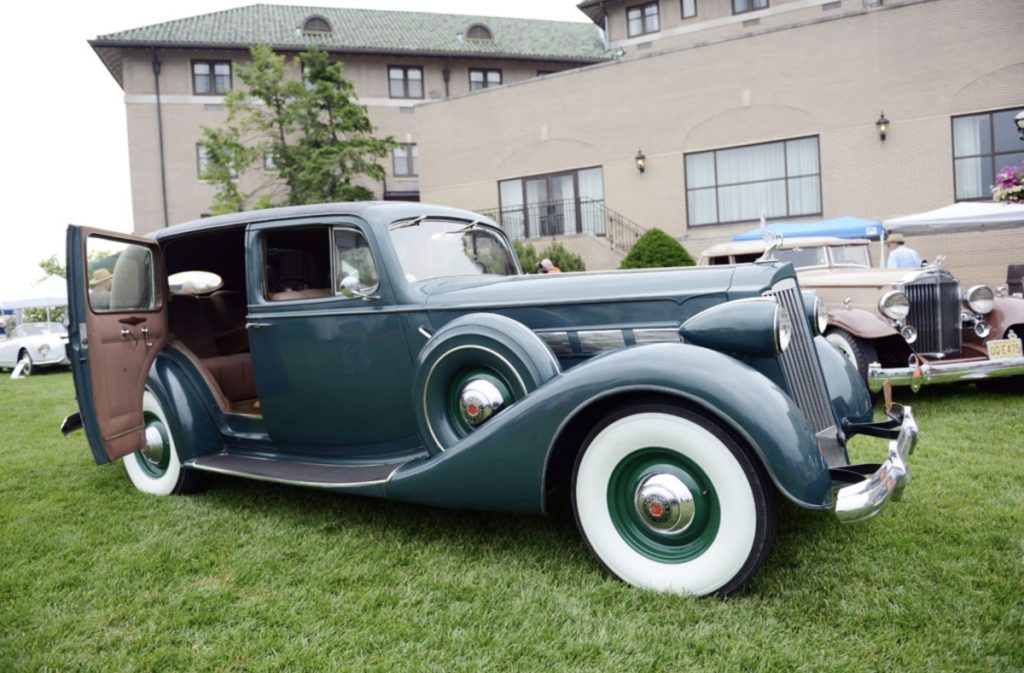
A Dazzling Range of Models
In 1937, Packard astounded the automotive world with a staggering lineup of 50 models, showcasing their dedication to providing options for every discerning customer. Building on the success of the 120 Model, Packard took a bold step further into the mid-price territory with the introduction of the 110 Model. Priced just $100 above the top models of Chevrolet, Ford, and Plymouth, the 110 Model allowed Packard dealers to cater to a wider audience, resulting in an overwhelming response from the market.
Packard achieved an unprecedented milestone in its history by producing a record-breaking 109,518 cars during this period. Despite the introduction of lower-priced models, Packards remained the preferred choice of notable personalities such as Bob Hope, Jack Benny, Jean Harlow, Al Jolson, Dick Powell, Irene Dunne, and even President Franklin Roosevelt.
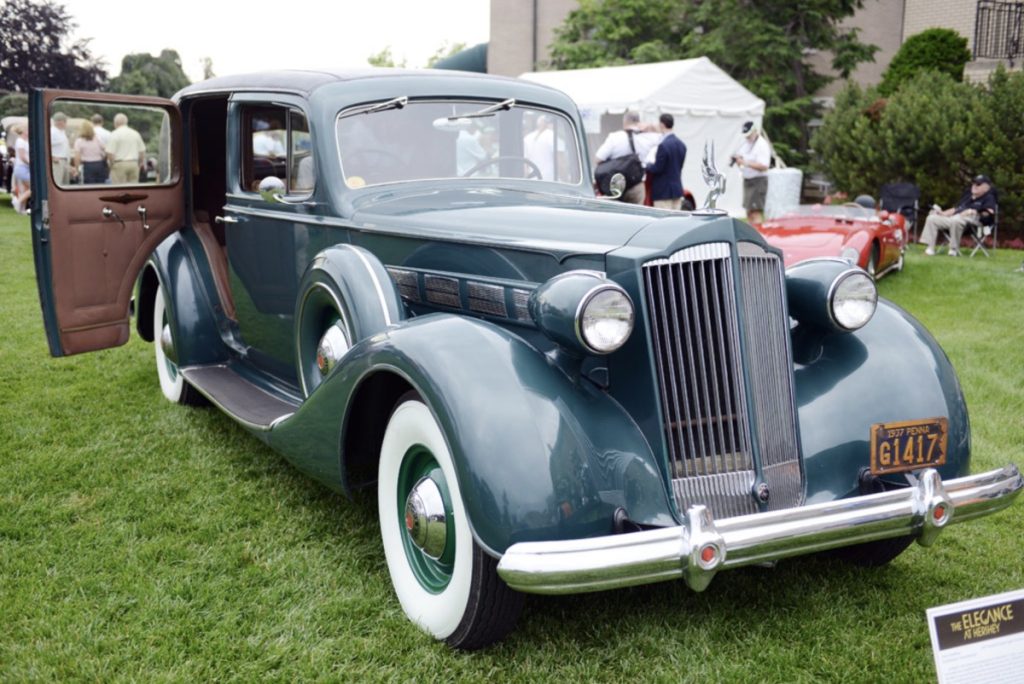
Engineering Marvels and Noteworthy Features
The senior Packards of 1937 boasted some groundbreaking advancements that solidified Packard’s reputation for innovation and quality. The introduction of independent front suspension and hydraulic brakes further enhanced the driving experience, providing superior handling and improved safety. These technological marvels set the Packard Super Eight apart from its competitors and showcased the brand’s commitment to excellence.
A Story of Remarkable Ownership
One exceptional example of the 1937 Packard 1501 Super Eight Formal Sedan stands out for its fascinating ownership history. This particular vehicle was purchased brand new on September 8, 1937, from a Packard dealer in San Francisco, California. The proud owner, Virginia Hobart Baldwin, was a highly respected member of the social elite, renowned for her patronage of the arts. The car remained in her possession until 1961 when it was sold and placed in storage for an astonishing 37 years. In 1998, the car found its fifth owner, who meticulously restored it to its original glory, showcasing its timeless beauty to the world once again.
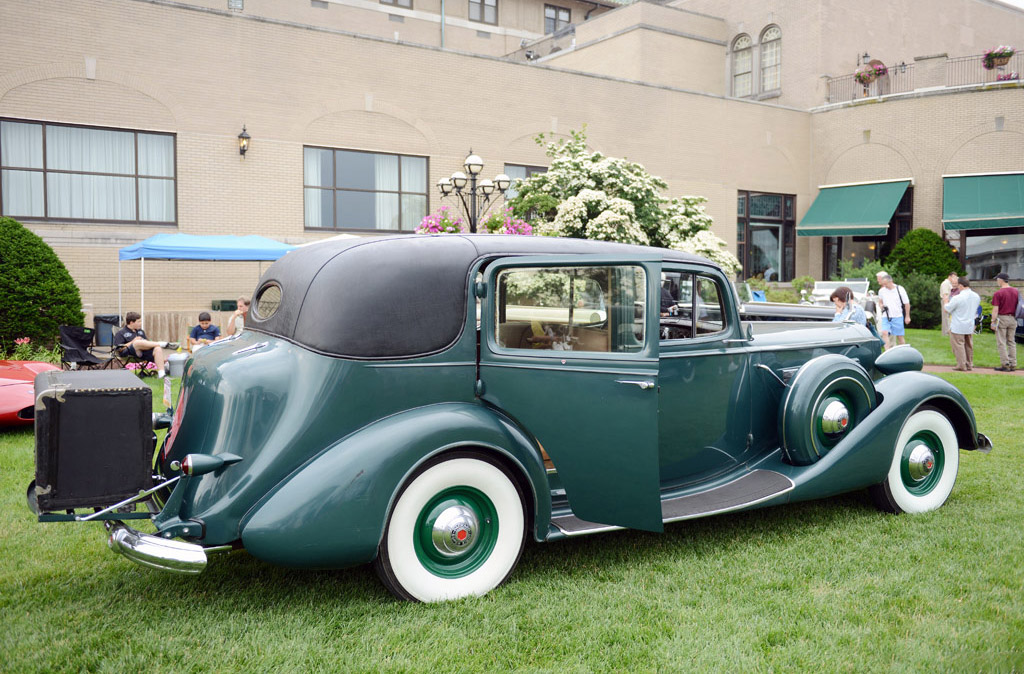
A Legacy of Power and Performance
The Packard Super Eight series was renowned for its exceptional power and performance. Packard’s iconic Twin Six model, featuring a twelve-cylinder engine, made its debut in 1916 and continued to captivate enthusiasts well into the 1920s. In the 1930s, Packard refined its lineup, offering a lower-priced six-cylinder model alongside the luxurious twelve-cylinder models. The Super Eight models, available with different wheelbase options, perfectly bridged the gap between the Packard Six and the range-topping Twelve.
Under the hood of the 1937 Packard 1501 Super Eight Formal Sedan resided a potent L-head, straight-eight, 320 cubic-inch engine. This impressive powerplant boasted nine main bearings, a Stromberg carburetor, roller cam valve lifters, and a standard 7.0:1 compression ratio. Delivering 135 horsepower at 3,200 RPM, this engine provided exhilarating performance for its time. The power was transferred to the wheels through a three-speed selective synchromesh transmission, offering smooth and precise gear shifts.
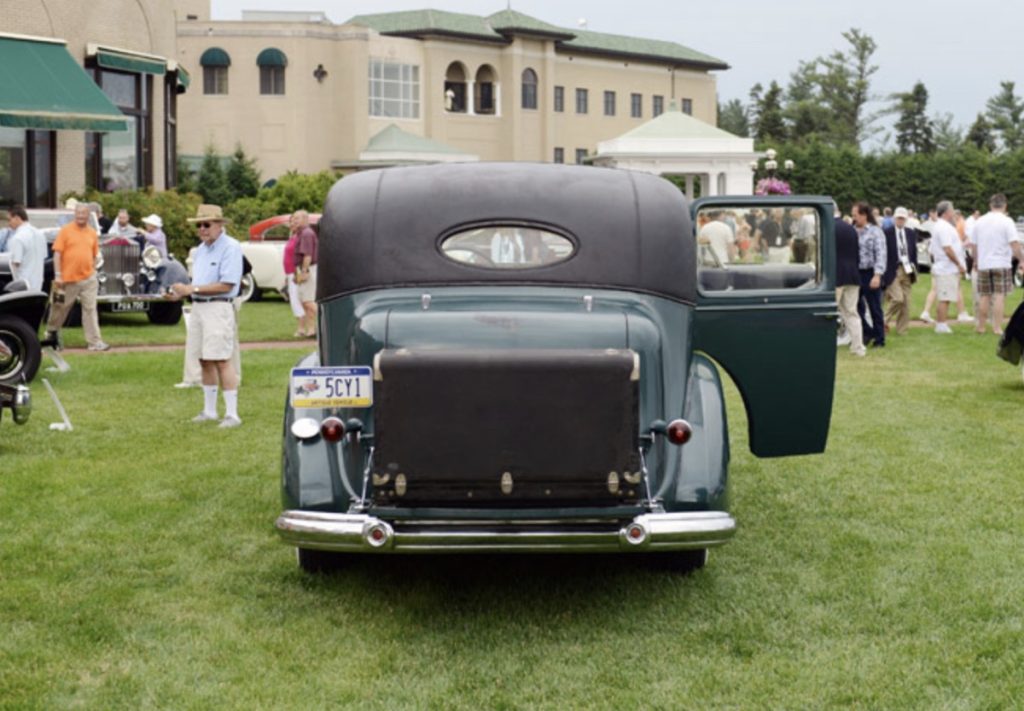
Exquisite Design and Customization Options
The 1937 Packard 1501 Super Eight Formal Sedan showcased unparalleled craftsmanship and design excellence. With a variety of body styles to choose from, customers had the freedom to select the perfect configuration to suit their preferences. The Series 1500, featuring a 127-inch wheelbase, offered a single five-passenger Touring Sedan body style that gained immense popularity. The Series 1501, with a wheelbase of 134 inches, provided customers with eight different body styles, including convertibles, coupes, sedans, and more. The largest wheelbase option of 139 inches, designated as the Series 1502, featured six unique body styles, including the exclusive Town Car with coachwork by LeBaron.
To enhance the driving experience and personalize their Packard Super Eight, customers could choose from a range of optional equipment. These included a radio, heater and defroster, dual side-mount spare tires, side-mount covers, bumper guards, and a spotlight. These customization options allowed owners to create a truly unique and personalized vehicle.
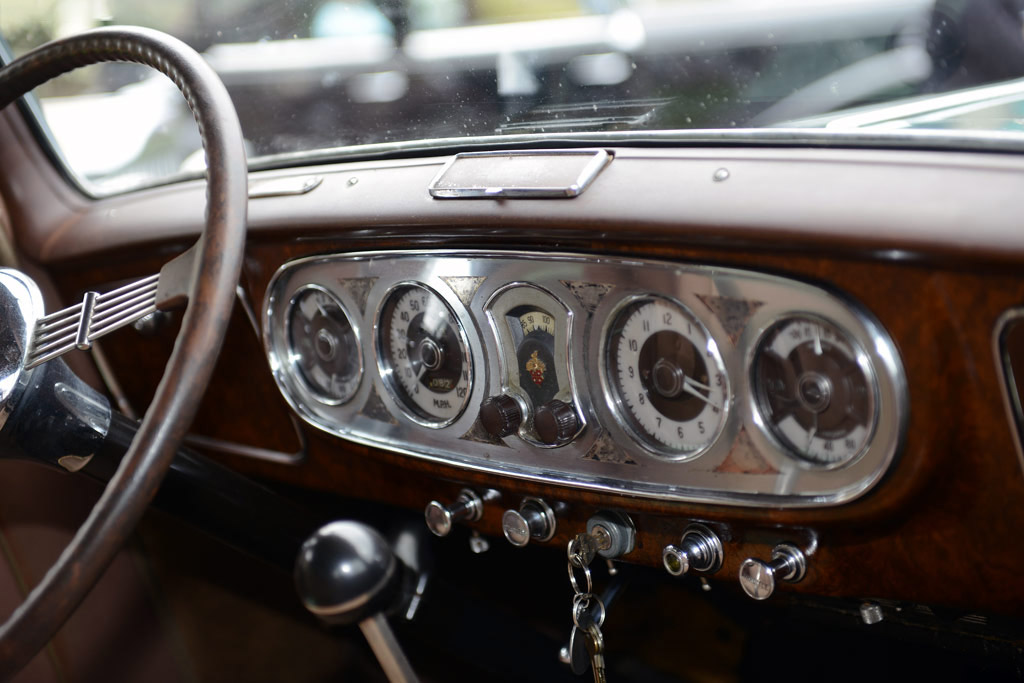
Conclusion
The 1937 Packard 1501 Super Eight Formal Sedan remains a timeless symbol of automotive excellence, embodying the elegance, power, and luxury that defined Packard during its golden era. From its captivating design to its advanced features and impressive performance, the Packard Super Eight continues to command admiration and respect. Owning a piece of automotive history like the 1937 Packard 1501 Super Eight Formal Sedan is a testament to the enduring legacy of craftsmanship and innovation.
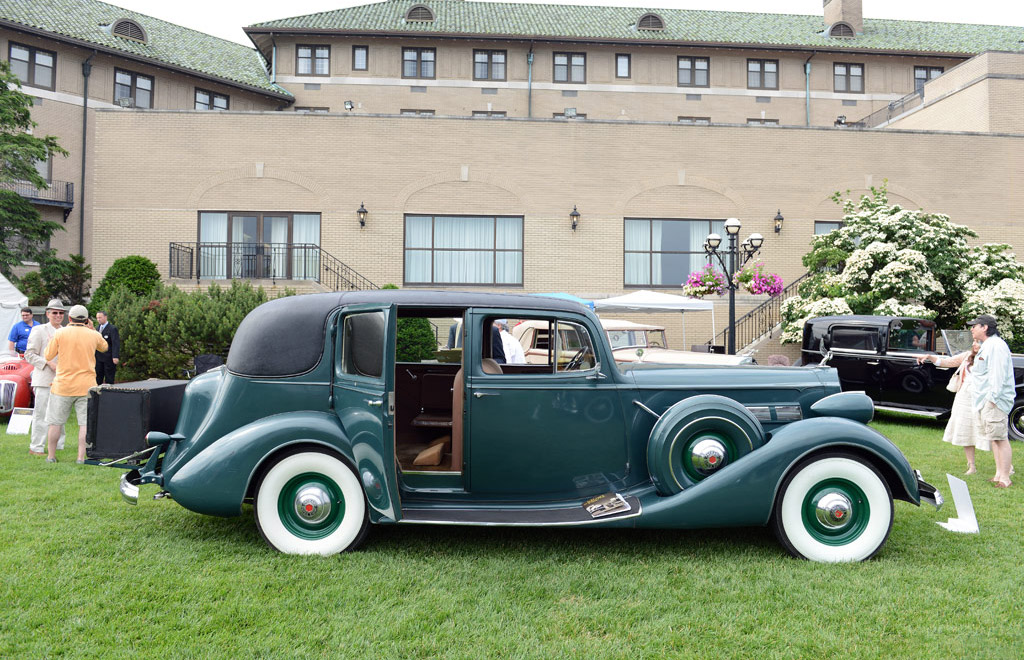
FAQs
1. How many models did Packard offer in 1937? Packard offered an astonishing lineup of 50 models in 1937, catering to a wide range of customers.
2. Who were some notable owners of Packards in 1937? Packards continued to be favored by notable personalities such as Bob Hope, Jack Benny, Jean Harlow, Al Jolson, Dick Powell, Irene Dunne, and even President Franklin Roosevelt.
3. What were some notable features of the 1937 Packard Super Eight? The 1937 Packard Super Eight introduced independent front suspension and hydraulic brakes, enhancing the driving experience and ensuring superior handling and safety.
4. How powerful was the engine in the 1937 Packard 1501 Super Eight Formal Sedan? The 1937 Packard 1501 Super Eight Formal Sedan featured a L-head, straight-eight, 320 cubic-inch engine that produced 135 horsepower at 3,200 RPM.
5. What customization options were available for the 1937 Packard Super Eight? Customers could personalize their Packard Super Eight with optional equipment such as a radio, heater and defroster, dual side-mount spare tires, side-mount covers, bumper guards, and a spotlight.